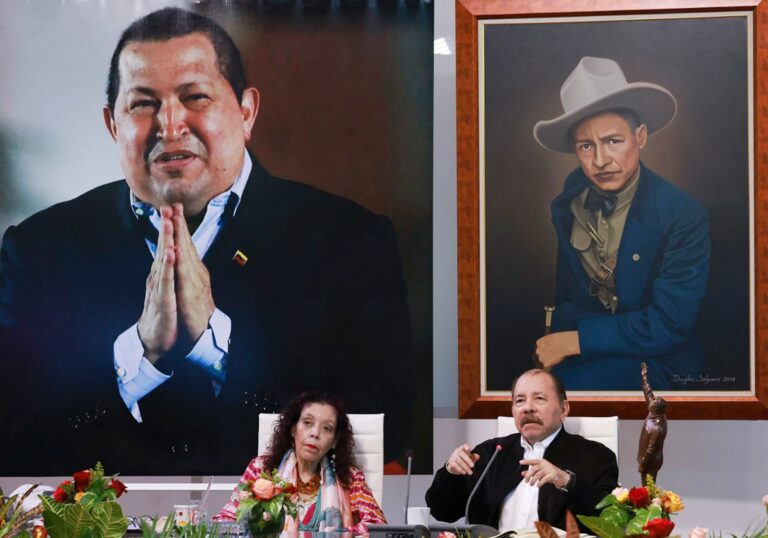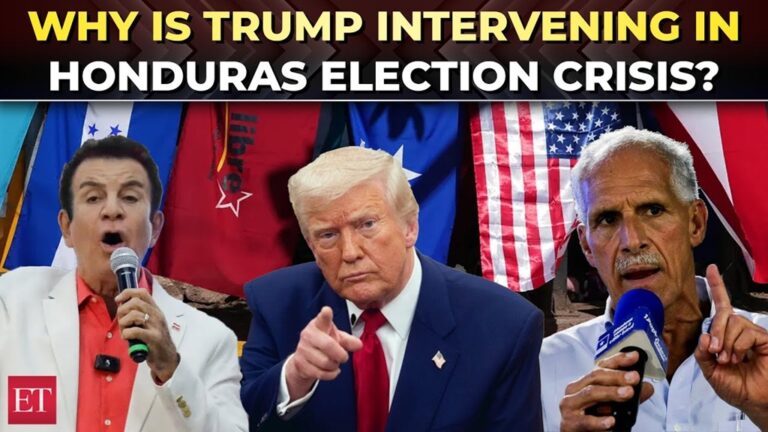-
-
Laura Dogu and Washington’s Regime-Change Playbook: Nicaragua, Honduras, Venezuela
Laura Dogu, newly appointed US envoy to Venezuela, is described by the Los Angeles Times as an appropriate choice because she “navigated crises” in Nicaragua and Honduras during periods of “social and political volatility.” What the LA Times fails to add is that it was precisely Dogu’s job to create crisis and volatility in both…
-
Nicaragua’s economy “weathers multiple shocks” including US attacks
The International Monetary Fund’s new assessment of Nicaragua’s economy labels it as “strong” no fewer than 56 times. But it also shows how key factors in the country’s growing prosperity – export earnings, trade relations and remittances (money sent by Nicaraguans living abroad) are vulnerable to US attacks. The IMF points out that US sanctions…
-
Why Nicaragua is not Washington’s next war – Yet
Since the US invasion of Venezuela on January 3rd and the abduction of President Nicolás Maduro, Nicaragua’s opposition figures – who enthusiastically identified with their confederates in Venezuela – have hoped that regime-change efforts in Caracas would encourage Washington to destroy Nicaragua’s Sandinista government.
-
Who governs Honduras?
Donald Trump’s attack on Venezuela and the kidnapping of its head of state have overshadowed his less brazen but possibly more effective regime-change operation in Honduras. No one can be sure if the National Party’s Nasry ‘Tito’ Asfura really won the presidential election on 30 November, but he was Trump’s endorsed candidate and will almost…
-
-
Year 2025 in Review for Latin America and the Caribbean: The Reactionary Backwash
2025 saw progressive governments in Latin America and the Caribbean (LAC) delegitimized and displaced. Right-wing forces have seized on drug-related crises to attack the so-called Pink Tide governments, driving a reactionary backwash and putting new, neoliberal administrations in power. The irony is that the rise in drug use and crime is driven by neoliberalism’s failure…
-
Trump’s interference invalidates the presidential election in Honduras
An extraordinary catalog of US interference – amounting to an electoral coup – may have destroyed what was already a struggling democracy in Honduras. Trump has succeeded in closing the door to progressive government and in all likelihood his preferred neoliberal candidate – previously trailing in many opinion polls – will be declared president when…
-
It’s not only about Venezuela: Trump intends a wider domino effect
It’s increasingly obvious that the US military threats against Venezuela have a wider agenda. Their game plan is regime change, but not only in Venezuela. This is the objective – on a longer timescale in some cases – across several of the countries in the Caribbean Basin, aiming to cleanse the region of governments deemed…
-
The Quiet Plot to End Progressive Government in Honduras
Trump’s gunboat diplomacy in the Caribbean grabs the headlines, while quieter moves to destabilize other progressive Latin American governments go unnoticed by corporate media. A key case is a plot that would create chaos enabling a neoliberal candidate to be declared victor, with Washington’s connivance, in Honduras’s elections on November 30.









